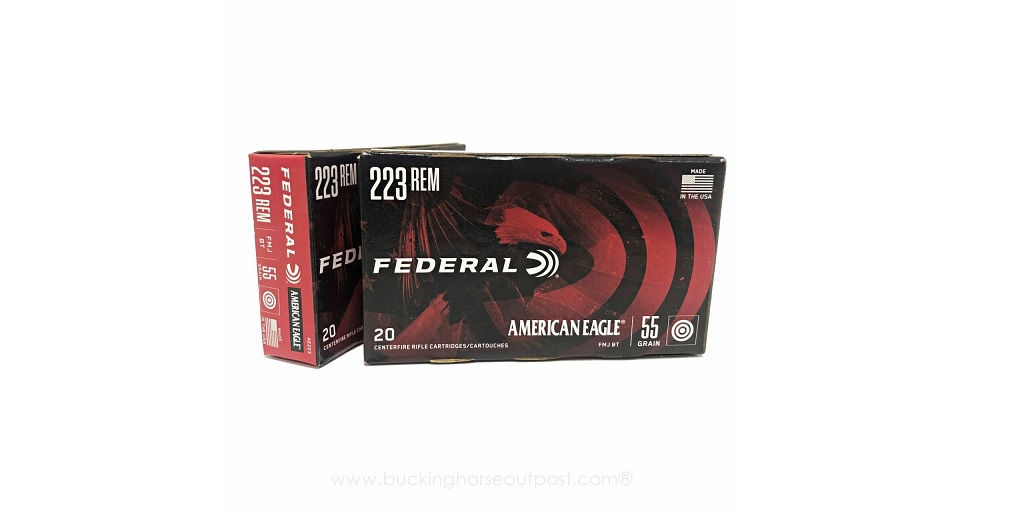
Those of you that have gotten into reloading to stretch your stocks of American Eagle .223 further have done the wise thing.
But for those among you that are new to reloading, there is a lot to learn. Follow load data to the letter; reload with quality primers, propellants, and bullets; clean and resize your brass before reloading.
Oh, and not all brass can be reloaded. Here are some things to avoid.
1. Aluminum, steel, or brass-plated steel.
This one is inconsequential for shooters of American Eagle .223 since those rounds are loaded into high-quality reloadable brass casings that can be reloaded several times.
But if you mix ammo or have a whole bucket of cases and need to sort through them, discard any that are silver-colored. These are steel or aluminum and can’t be reloaded.
Also, sift through the bucket with a magnet. This will help you remove any brass-plated steel that looks like it can be reloaded, but which in reality cannot.
2. Discard any that show signs of repeated firing
If the brass is not yours, and you’re picking it up at the range, a little fouling on the inside and outside of the case is fine.
Excess is not good and will require more thorough cleaning. Also, take a look at the headstamp.
Is it all worn out, to the point that it’s hard to read because the case has slammed into a bolt face several times? Are the primers mixed silver and gold? That means someone probably has reloaded and fired this brass multiple times and left it because it’s usable life is over.
Don’t try to reload it yourself.
3. Avoid case dents
A dented case is a weak case liable to bulge on the next firing. Case rupture can be a potentially dangerous situation that can even damage the firearm or injure you.
If you see dents in your cases, the safe practice is to throw them away. You can pull out some dents but the case will be weakened and may still rupture; it’s best not to try.
4. Avoid case cracks and split case necks
Any cases that are cracked should be discarded immediately as they are almost certain to rupture when fired again.
The same goes for split case necks. Even if the case doesn’t rupture, accuracy will probably be average at best because it will be difficult to seat the bullet properly in a cartridge with a split neck.
5. If in doubt, throw it out (or trade the extra for scrap)
Last bit of advice: if you’re not sure, just throw it away. Better be safe than sorry.
Or, you could trade that brass for scrap. Scrap prices are high and some places might give you a dollar or more per pound for scrap brass.
Need New American Eagle .223 Ammo?
Looking for more Federal American Eagle .223 Remington to fuel your shooting hobby? Visit Bucking Horse Outpost. They offer fair prices and excellent variety in rifle and handgun ammunition that are ideal for target shooting and other high-volume shooting disciplines.
Just make sure you don’t toss your brass the next time you’re at the range. American Eagle .223 can be reloaded several times.


